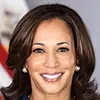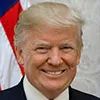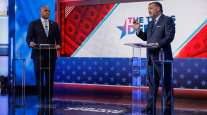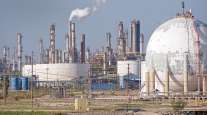Senior Reporter
Harris, Trump Campaigns Make Final Push Before Election Day
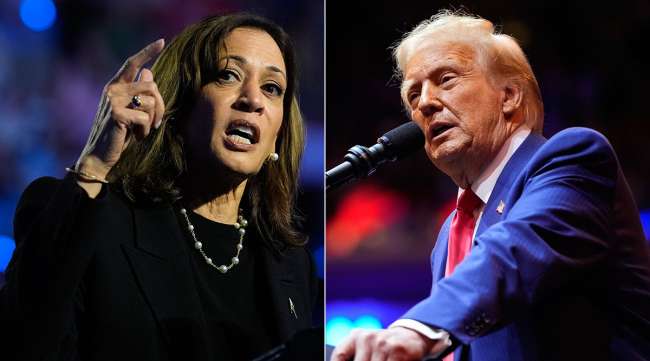
[Stay on top of transportation news: Get TTNews in your inbox.]
Vice President Kamala Harris and former President Donald Trump delivered their closing arguments to voters heading into Election Day as their presidential campaigns sought to capture momentum before the finish line.
The candidates throughout their campaigns outlined long-term visions for the economy as well as energy production, both advocating for a higher standard of living for Americans while presenting different plans for how to achieve that goal.
SPEAR: ATA Will Keep Leading No Matter Election's Outcome
The economic agenda touted by the vice president and her running mate, Minnesota Gov. Tim Walz (D), remained focused on the manufacturing and labor sector along with working-class residents from historically low-income enclaves.
Speaking to thousands of supporters on the National Mall on Oct. 29, the vice president acknowledged national economic concerns. “Our biggest challenge is to lower costs — costs that were rising even before the pandemic, and that are still too high. I get it.”
RELATED: Vice Presidential Candidates Defend Energy Policies
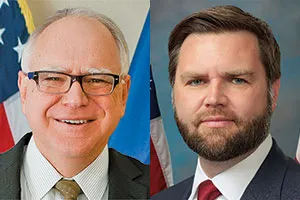
Vice presidential running mates Tim Walz (Harris) and J.D. Vance (Trump)
“I still remember our mother sitting at that yellow Formica table late at night, cup of tea in hand, a pile of bills in front of her, trying to make it all work,” she continued. “And I’ve heard from so many of you who are facing even greater financial pressures.”
The Harris campaign espoused facilitating access to tax benefits for first-time homebuyers and small business owners, stressing through the campaign’s official website an ambition to “create an opportunity economy where everyone has a chance to compete and a chance to succeed — from buying a home to starting a business and building wealth.”
Our biggest challenge is to lower costs — costs that were rising even before the pandemic, and that are still too high. I get it.
Kamala Harris, Democratic Party presidential candidate
Image
During her tenure as vice president, Harris championed the $1.2 trillion Infrastructure Investment and Jobs Act, which has been instrumental for upgrading the nation’s highways and bridges. She also supported the Inflation Reduction Act, which is funding zero-emissions technologies in commercial transportation.
RELATED: Harris, Trump Pledge Economic Progress
On the Republican side, Trump remained consistent in his support for ramping up national energy production, enhancing domestic manufacturing and securing supply chain corridors. The former president also pledged to halt Biden-era electric vehicle rules and regulations. Regarding the economy, Trump proposed tariffs on imported goods and expressed support for streamlining environmental reviews associated with the construction sector.
We will cut your taxes, end inflation, slash your prices, raise your wages and bring thousands and thousands of factories back to America.
Donald Trump, Republican Party presidential candidate
Image
Trump summarized the economic aspects of his agenda for supporters in New York on Oct. 27: “We will cut your taxes, end inflation, slash your prices, raise your wages and bring thousands and thousands of factories back to America.” During his presidency, he enacted comprehensive provisions to the federal tax code.
The campaign of Trump and his running mate, Sen. J.D. Vance (R-Ohio), amplified the party’s policy agenda. Outlined in “2024 GOP Platform: Make America Great Again!” it states: “We will become energy independent, and even dominant again. The United States has more liquid gold under our feet than any other nation, and it’s not even close. The Republican Party will harness that potential to power our future.”
RELATED: Senate Transportation Leaders in Competitive Races
Per a Gallup poll taken in late October, 54% of registered voters said they had already voted or planned to vote before Election Day. “Millions of Americans have already performed their civic duty and voted in this year’s presidential election,” according to Gallup. “Early voting opportunities have expanded in recent years, and the 2024 election could be the second in which more ballots are cast before Election Day than on it.”
Want more news? Listen to today's daily briefing below or go here for more info:


